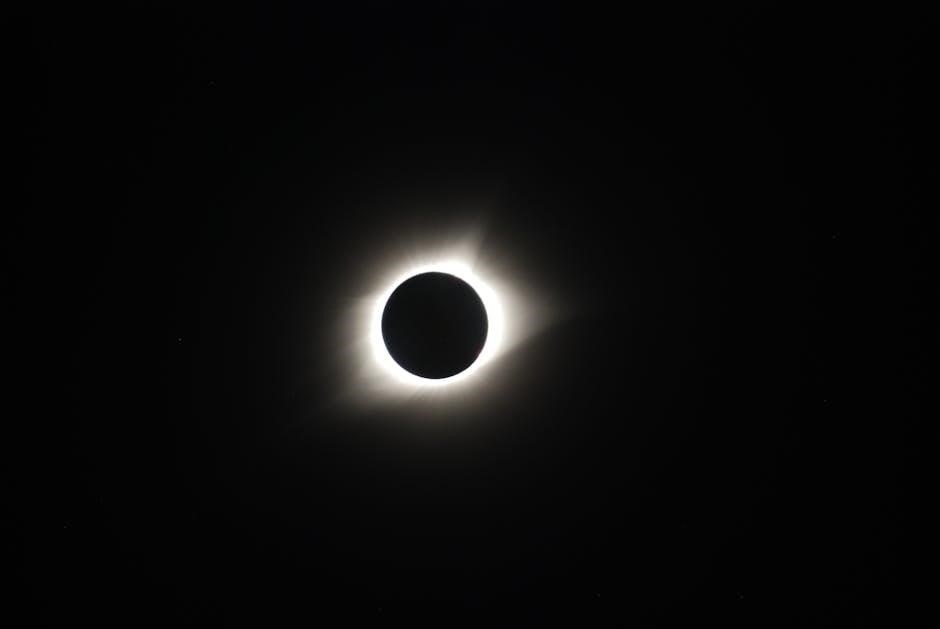Overview of Annie Dillard’s “Total Eclipse”
Annie Dillard’s “Total Eclipse” is a literary nonfiction masterpiece. The essay recounts her experience witnessing a solar eclipse in 1979. Dillard masterfully blends descriptive language with philosophical reflections, exploring themes of beauty and terror. It is a profoundly unsettling encounter.
Context and Background of the Essay
Annie Dillard, a Pulitzer Prize-winning author, penned “Total Eclipse” in 1982. It appeared in her collection, “Teaching a Stone to Talk.” The essay reflects her broader interest in nature and phenomenology. Dillard is known for her keen observations and philosophical insights. She had driven five hours inland from the Washington coast with her husband. They sought the path of totality to witness the eclipse. The event occurred on February 26, 1979.
Dillard’s work often explores the sublime. She examines humanity’s place in the vast cosmos. “Total Eclipse” is a prime example of her ability. Her personal experiences blend with universal themes. Readers have thrilled to “Total Eclipse” since its initial publication.
Dillard’s Personal Experience of the 1979 Solar Eclipse
Annie Dillard’s “Total Eclipse” vividly recounts her experience of the 1979 solar eclipse. She and her husband traveled to the Yakima Valley in Washington. They aimed to be in the path of totality. Dillard describes the surreal and haunting atmosphere. The sun’s disappearance transformed the familiar landscape. Platinum grasses and an uncanny valley emerged.
Her narrative captures the unsettling nature of the event. The world was wrong, she observes. Sensory details immerse readers in her perspective. The temporary loss of the sun evoked a sense of cosmic drama. She reflects on the disorientation and the sublime. Dillard’s experience was both personal and profoundly universal. The eclipse prompted deep existential questions. It forced a confrontation with the unknowable.
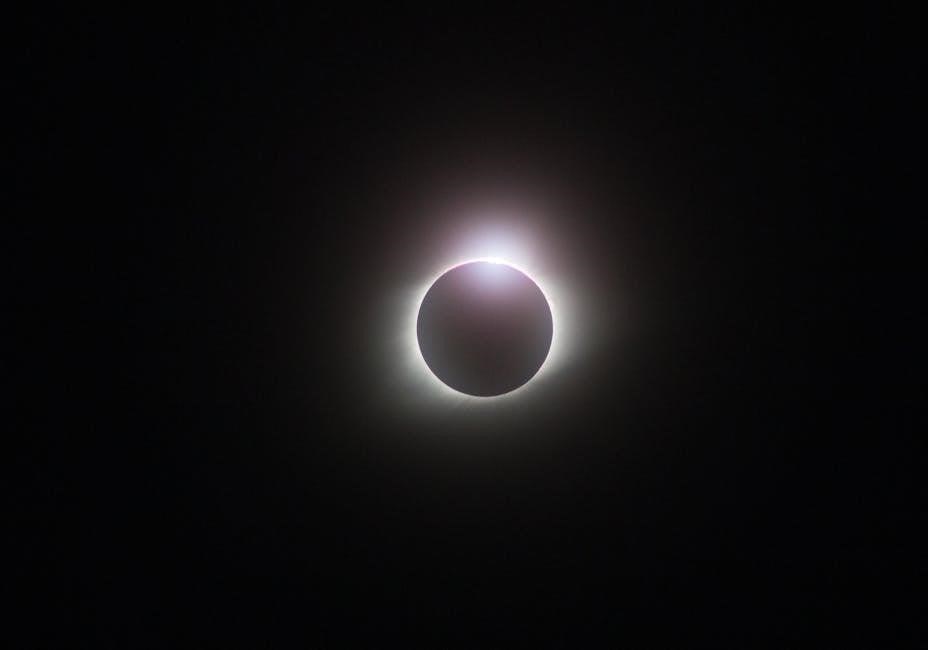
Key Themes and Literary Devices
Dillard’s essay explores themes of beauty, terror, and the sublime. She employs vivid sensory details. Juxtaposition enhances the narrative’s depth. Philosophical reflections intertwine with descriptive prose. Her writing captures the eclipse’s unsettling power.
The Juxtaposition of Beauty and Terror
In “Total Eclipse,” Annie Dillard masterfully juxtaposes beauty and terror. This contrast creates a compelling tension throughout the essay. The eclipse, a celestial spectacle, is simultaneously awe-inspiring and deeply unsettling. Dillard emphasizes this duality by portraying nature’s capacity for both creation and destruction. The sudden darkness and the surreal changes in the environment evoke a sense of dread.
She contrasts this terror with the undeniable beauty of the eclipsed sun. This creates a powerful, disorienting experience for both Dillard and the reader. The essay explores how moments of intense beauty can coexist with profound fear. This juxtaposition forces us to confront our perceptions of the world. The natural order reveals a darker side.
Ultimately, Dillard’s exploration of beauty and terror highlights the complex relationship between humanity and the natural world.
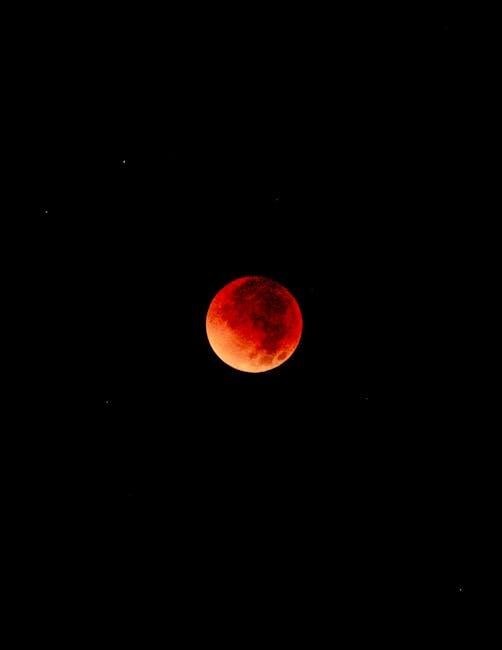
Dillard’s Use of Sensory Details
Annie Dillard’s “Total Eclipse” is distinguished by her exceptional use of sensory details. She paints a vivid picture of the eclipse through descriptions that engage all the senses. Her detailed observations allow the reader to experience the event alongside her. Dillard describes the changing colors of the landscape. She captures the eerie silence that descends during totality. The platinum grasses and lusterless yellow air create a surreal atmosphere.
She notes the sudden drop in temperature and the reactions of animals. These sensory details heighten the sense of disorientation and wonder. The inclusion of specific sounds, or rather the absence of familiar ones, amplifies the unsettling nature of the experience.
Dillard’s careful attention to sensory input transforms the essay into a visceral journey. This allows the reader to comprehend the eclipse on a deeper, more emotional level. Her writing style is both descriptive and evocative. This makes “Total Eclipse” a memorable piece of literary nonfiction.
Exploration of the Sublime and the Unknowable
In “Total Eclipse,” Annie Dillard delves into the concepts of the sublime and the unknowable. The essay explores the awe-inspiring and terrifying aspects of nature. The eclipse serves as a catalyst for contemplating the mysteries of the universe. Dillard grapples with the insignificance of human existence. She juxtaposes this with the grandeur of cosmic events.
The experience pushes her to confront the limits of human understanding. The eclipse is something that is entirely different from what one knows. It transcends ordinary perception and logic; This confrontation with the unknowable leads to a sense of both wonder and dread.
Dillard’s reflections extend beyond the scientific explanation of the eclipse. She delves into its profound impact on the human psyche. By exploring the sublime, she invites readers to consider their place in the cosmos. They ponder the boundaries of knowledge. This makes “Total Eclipse” a powerful meditation on existence.
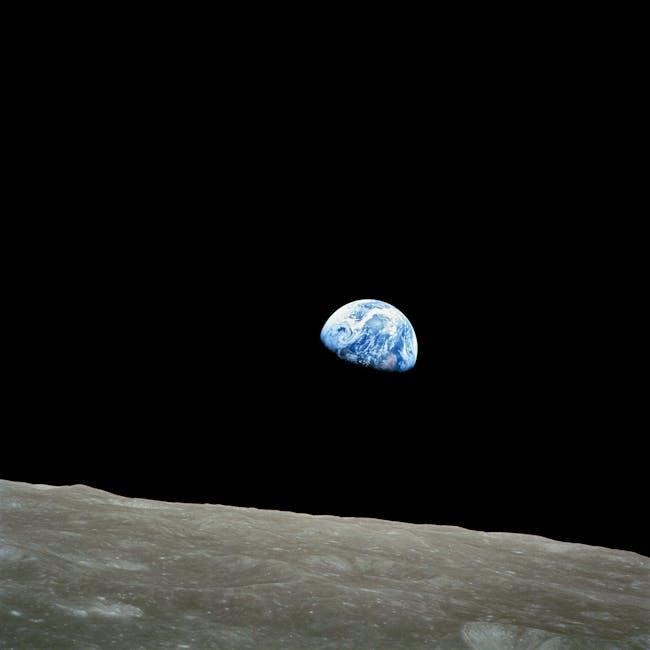
Analysis of Dillard’s Writing Style
Annie Dillard’s writing style in “Total Eclipse” is marked by vivid descriptions. There are also philosophical insights. Her evocative language creates a haunting. It also creates a surreal atmosphere. This draws the reader into her experience.
Descriptive and Evocative Language
Annie Dillard’s “Total Eclipse” is renowned for its rich and evocative language. She paints a vivid picture of the solar eclipse. It’s done through meticulous detail and sensory imagery. Dillard’s descriptive prowess transforms a scientific event into a deeply personal and almost spiritual encounter. Her writing captures the eerie quality of the darkening landscape. It captures the changes in the behavior of animals. It also captures the emotional responses of the human observers.
She uses figurative language, such as similes and metaphors, to convey the unearthly atmosphere. She is creating a sense of the sublime. The essay becomes more than just a recounting of an event. Instead, it evolves into an exploration of perception and reality. Dillard’s word choices evoke a range of emotions, from wonder and awe to fear. She is also skilled at capturing the feeling of disorientation. She uses a shift in perspective that accompanies the eclipse.
Philosophical Reflections and Insights
Beyond its descriptive power, “Total Eclipse” delves into profound philosophical reflections. Annie Dillard contemplates the nature of reality, perception, and the human condition. The experience of witnessing the eclipse serves as a catalyst for exploring themes of mortality and the sublime. She challenges conventional understandings of the world. She questions the limits of human knowledge.
Dillard’s insights extend to the human relationship with nature. She examines the insignificance of humanity in the face of cosmic events. The essay explores the tension between scientific observation and personal experience. She grapples with the unknowable aspects of existence. She does this by using the eclipse as a symbol for the mysteries that lie beyond human comprehension. Through her reflections, Dillard invites readers to contemplate their place in the universe. She also invites them to confront the uncertainties of life. She also encourages them to appreciate the beauty and terror.
The Essay as Literary Nonfiction Masterpiece
“Total Eclipse” stands as a cornerstone of literary nonfiction. Annie Dillard’s essay transcends the typical observational account of a celestial event. It is a powerful blend of personal narrative, scientific observation, and philosophical inquiry. It shows the capabilities of the literary nonfiction form. The essay is admired for its evocative prose. It is also admired for its profound insights.
Dillard’s unique voice and perspective elevate the essay to a masterpiece. She seamlessly weaves together personal experiences and broader existential questions. She captures the haunting, surreal experience of witnessing the solar eclipse. She utilizes the eclipse as a lens through which to examine the human condition. “Total Eclipse” exemplifies the power of literary nonfiction. It showcases its ability to explore complex themes. It is also an exploration of the human experience through the lens of nature. The text remains a celebrated and influential work.
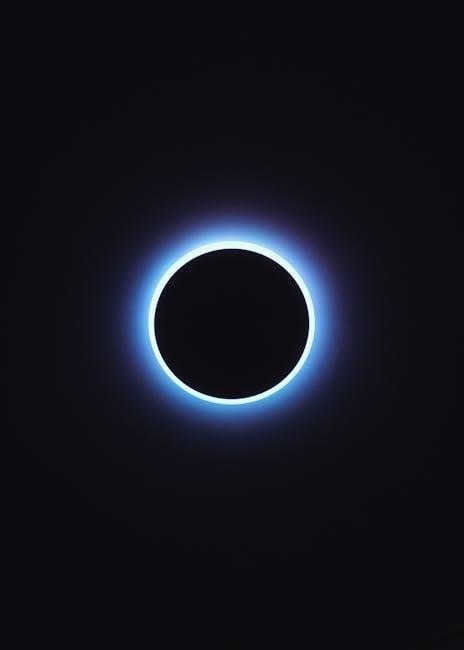
Impact and Legacy of “Total Eclipse”
“Total Eclipse” has resonated deeply with readers. It established itself as a significant contribution to nature writing. Annie Dillard’s essay is a testament to the enduring power and relevance of personal essays.
Reception and Critical Acclaim
Annie Dillard’s “Total Eclipse” has garnered widespread reception. It has earned significant critical acclaim since its original publication in 1982. The essay is celebrated for its profound insights. It also includes its evocative prose, and its unflinching exploration of the sublime. Critics consistently praise Dillard’s ability to capture the awe-inspiring. It describes the unsettling nature of witnessing a total solar eclipse.
Readers and scholars alike recognize “Total Eclipse” as a cornerstone of literary nonfiction. It is a testament to Dillard’s skill in blending personal narrative. It also includes scientific observation, and philosophical inquiry. The essay’s enduring appeal lies in its ability to transcend. It goes beyond a mere recounting of an event. It instead delves into the depths of human perception and the mysteries of the universe. “Total Eclipse” continues to be studied. It continues to be admired for its literary merit and its profound impact on readers.
Influence on Nature Writing and Personal Essays
Annie Dillard’s “Total Eclipse” has exerted a significant influence on both nature writing. It also includes the realm of personal essays. The essay’s innovative approach to blending scientific observation with personal reflection has inspired many writers. They aspire to capture the essence of the natural world. It also explores the human experience within it. Dillard’s willingness to confront the unsettling aspects of nature. It also includes the sublime, has encouraged others to move beyond romanticized portrayals.
Her emphasis on sensory detail and philosophical inquiry has shaped the way contemporary writers approach the personal essay. It is a medium for exploring complex ideas and emotions. “Total Eclipse” serves as a model for crafting narratives. It seamlessly weaves together the objective and subjective. It also offers readers profound insights into the human condition. The essay’s impact is evident in the works of subsequent nature writers. They seek to emulate Dillard’s distinctive voice and her profound engagement with the world around her.
Relevance and Enduring Appeal of the Essay
Annie Dillard’s “Total Eclipse” maintains its relevance and enduring appeal due to its exploration of universal themes. It includes mortality, perception, and humanity’s place within the cosmos. The essay’s vivid descriptions of the eclipse and its aftermath resonate with readers. The author’s capture of the awe and terror that can be inspired by natural phenomena.
Furthermore, Dillard’s introspective reflections on the experience invite readers to contemplate their own relationship with the world. The essay’s ability to evoke a sense of wonder and unease ensures its continued significance in a rapidly changing world. It is a reminder of the power of nature to disrupt our ordinary perceptions. The essay also forces us to confront the limits of human understanding. “Total Eclipse” remains a compelling and thought-provoking work for those seeking a deeper connection with the world.
